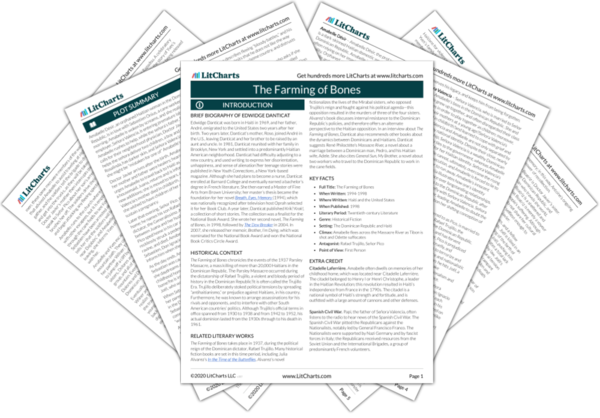Félice and Yves’s decisions—to stay and leave the Dominican Republic, respectively—illustrate how the idea of belonging can change, and how it is different for each person. Félice elects to stay out of fear; she no longer feels connected enough to Haiti to risk the trip. For Yves, however, Haiti is still a place that he values: he did not feel like a part of the Dominican Republic, and so is willing to journey back despite the dangers. Félice also keeps Joël’s mask, a physical emblem of his legacy. By owning it, she is taking on the responsibility of preserving his memory: she will continue to recall him and gaze upon him, thereby keeping him alive despite his death.
